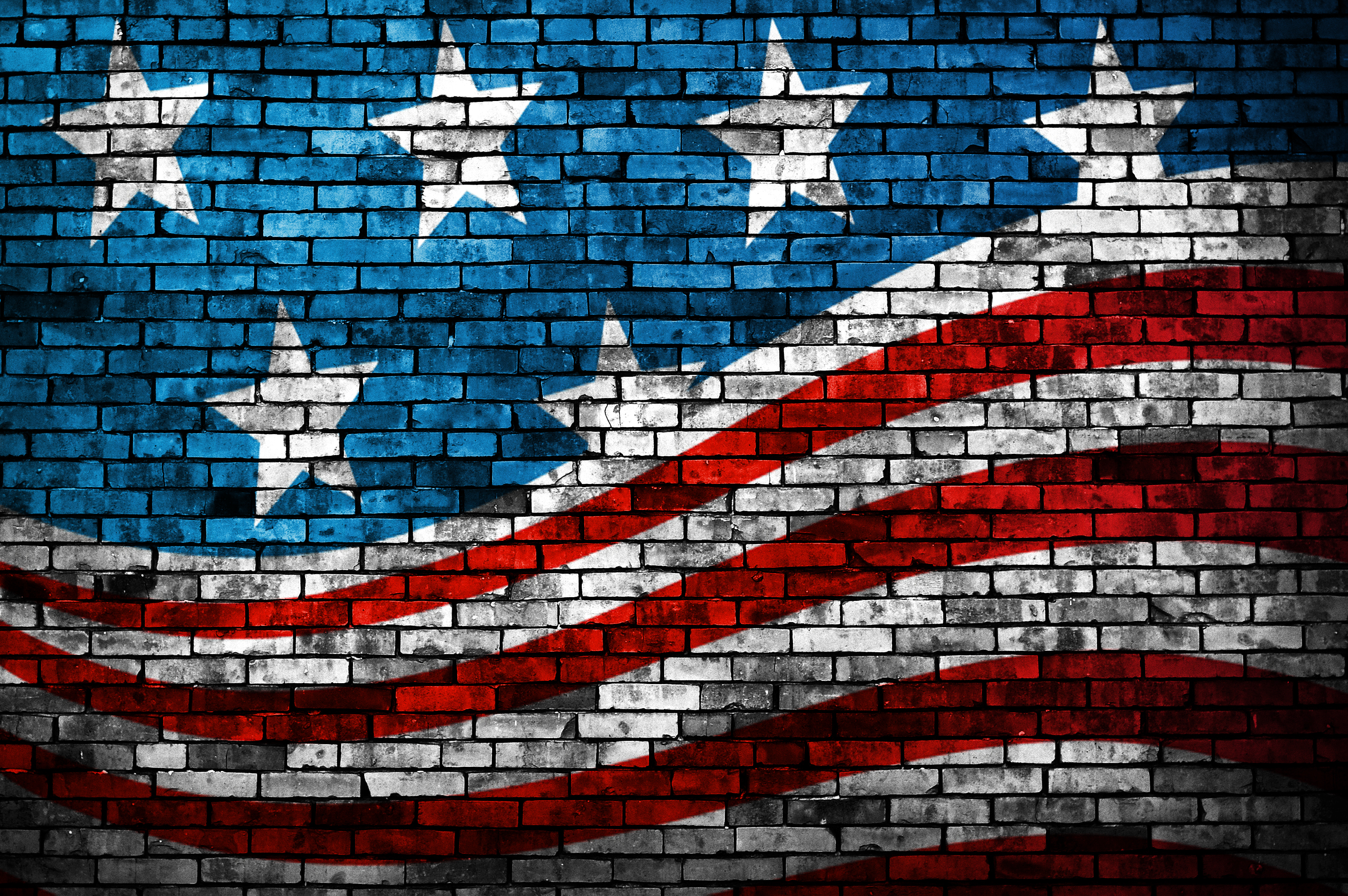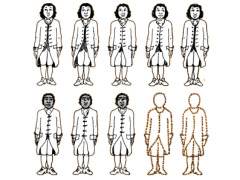In America, there is often an unspoken assumption that if a government rests on some form of “representation” then it must be morally good. But this is not necessarily so. The underlying assumption, which is deeply held and often unexamined, is that representative forms of government are fundamentally moral, or much more likely to be moral, because they represent the interests of “the people.” That view is deeply entrenched in our founding, in mythic events such as the original Tea Party which proclaimed, “No Taxation without Representation.” But for reasons that are readily self-evident, if one bothers to think about it, morality does not necessarily flow from representation, whether it in a republic or even a democracy. Representative governments unfortunately can be immoral too.
To be sure, one might argue that democratic or republican forms of governments are inherently more ethical or moral than those in which power is concentrated in the hands of an individual or a few, and the rights and freedom of the many are downplayed, if not suppressed. In contrast to these other political systems, it seems prima facie evident that a representational form of government is more moral than those which are not. It is this contrast that gives us Americans the feeling that having a representational form of government makes our political system moral. Representation, in other words, by definition seems to carry with it a certain amount of moral goodness simply through its very sheer existence. It is this “goodness quotient” that Americans often intuitively rely on when taking for granted that our representational democracy is morally good.
“Goodness Quotient” Not Enough
Nonetheless, the “goodness quotient” provided by representation isn’t enough to make a government, by definition, inherently moral. Why not? The obvious reason, which is often ignored or downplayed, is that human beings themselves are not necessarily moral and therefore the governments which represent them are not necessarily moral either. People can and do vote for immoral policies. People do hate, act selfishly, and do try to usurp power and resources through representational systems. People also disagree on what is moral and right. Representation, in other words, does not turn human beings into saints, nor does it turn governments into moral entities. Thus, while representation is a possible cure for the centralization and abuse of political power, representation is not by itself a cure for selfish, immoral, or irrational inclinations. Democracy does not necessarily solve the problem of trying to implement morality.
The world’s major and not so major religions all recognize the moral ambiguity in human nature that is too often glossed over in politics. In the Judeo-Christian traditions, human individuals are understood to be somewhere between animals and the angels, with animals having no real sense of conscience or of the difference between good and bad, and angels being the pinnacle towards which humans aspire. Whether humans are thought to be born in sin, as Catholics understand the Fall, or whether they are born as a blank slate upon which they can write a personal story of good or evil, depends upon the variety of religious tradition. Nor must one necessarily embrace any theological view of human beings to recognize the truth that we don’t always reach our moral aspirations, and even modern depth psychology recognizes that humans struggle with the capacities for good and bad and even evil.
Disagreement Over Moralities
It is a very important issue, then, to consider how representative governments are supposed to interact with moralities. Of course, part of the issue is that not all religions or all people agree on what is moral and right in the first place. The disagreement over morality is not just or even primarily a difference in whether people believe in God or not. Even people who believe in the same God disagree on what God wants of them. And often many people agree on moral issues who otherwise disagree on religion.
The American separation of Church and State (and the ideas of religious toleration from which it grew) attempted to deal with one variation of this conflict between government and morality. By making religion a private matter, and not a matter endorsed by the state, the framers moved what was a contentious and inflammatory issue to the private sphere. One could worship and believe as one saw fit; one could think whatever one wanted of the afterlife, and one did not have to take an oath to a Christian God to be in office.
But what about the rest of our morality? How is representational government supposed to interact with the broader differences in ethical perspective? How is society to come to grips with moral questions that are at the heart of social life together? Is the rest of morality left to the political process to be dealt with and is morality simply the outcome of voting?
These are interesting questions and ones which the American framers did not quite articulate in quite the way I am doing so here. But one can still discern two different approaches to this question in the debates leading up to the adoption of the U.S. Constitution.
On Competing Interests
First, they saw conflicts in society as deriving from competing “interests.” The word “interest” was one of the ways they characterized the contentious issues that divided various groupings of people. Everyone was afraid of being dominated by someone else’s interests: small states by big states, agricultural by commercial interests, national versus local interests. The debates in the Constitutional Convention of 1787 were all about how power and control would and should be distributed and which group of people might try to override the interests of others. While the framers did not typically articulate the concept of “interests” in terms of morality, it is possible to read their use of the term as in part a debate as to how to balance or juggle the values, moralities and worldview of a population.
In the Constitutional Convention, and in the Constitution that came out of it, there was an attempt at an emerging compromise in the distribution of power, so that no single group’s interests could dominate. James Madison was a central figure in these debates and particularly thoughtful on this issue of interests, arguing that majorities should be kept from suppressing minorities. It’s worth quoting him at length[1]This quote is from Madison’s Notes on Debates he made during the Constitutional Convention on Wednesday June 6, 178. See James Madison, The Writings. Vol II. Online Library of Liberty, p. 56:
We have seen the mere distinction of colour [of skin] made in the most enlightened period of time, a ground of the most oppressive dominion ever exercised by man over man. What has been the source of those unjust laws complained of among ourselves? Has it not been the real or supposed interest of the major number? Debtors have defrauded their creditors. The landed interest has borne hard on the mercantile interest. The Holders of one species of property have thrown a disproportion of taxes on the holders of another species. The lesson we are to draw from the whole is that where a majority are united by a common sentiment, and have an opportunity, the rights of the minor party become insecure.
On Madison’s view, the remedy for the issue of conflicting moralities was to distribute power and reduce the ability of a majority to dominate a minority[2]Madison: “The only remedy is to enlarge the sphere, & thereby divide the community into so great a number of interests & parties, that in the 1st. place a majority will not be likely at the … Continue reading. To the extent this worked, Madison argued, no group would be able to impose its cultural views and moralities on another without agreement from many different groups. One can, of course, debate whether this is in fact achieved in the present system.
Lowest Common Denominator and the Bill of Rights
The second way the founders tried to address the question of morality was with the Bill of Rights, which represented an attempt to define the lowest common denominator of moral commitments (rights) that everyone could agree on, and which would be defined as above and beyond the normal to-and-fro of representational decision. These were foundational rights that were thought to be so central and so basic to the freedom of a people that even a typical vote couldn’t trump them and only a constitutional amendment, if that, could overturn them. These rights were thought so basic and so self-evident that they were unquestioned[3]In my book, Beyond Liberty Alone, I discuss the quest by the founders’ predecessors for a foundational morality that everyone could agree on. This set of “self-evident” rights was assumed by … Continue reading. But apart from these moral commitments or rights that were represented in the Bill of Rights, any other moral commitment was theoretically up for grabs in a representational democracy. Religious and economic groups could promote their own distinctive cultural and moral commitments and win their dominance through the representational system. As long as they weren’t imposing religiously informed morality by fiat, it was totally fine to impose them through the representational system.
The upshot is that much that fell into morality in general was ultimately left up to the give-and-take of the representational system. While a representational democracy has significant procedural commitments to the distribution of power, and some substantive commitments to certain rights in the Bill of Rights and in the constitutional tradition of interpretation, it ultimately leaves the wider array of morality wide open. All of this means that a democracy is not always moral and is pulled back and forth by competing visions of human good. So when we think of America as great, simply because it has a representational democracy, we should remember that not all democracies are inherently moral. Which moral vision is adopted depends not on the freedom to vote but on the practices that are implemented in a representational system. This is why not all democracies or republics are the same, and why the status of being a democracy or republic does not by itself guarantee a moral system. Which we are, depends of course on which view of morality each of us holds and brings to the table.
References
| ↑1 | This quote is from Madison’s Notes on Debates he made during the Constitutional Convention on Wednesday June 6, 178. See James Madison, The Writings. Vol II. Online Library of Liberty, p. 56 |
|---|---|
| ↑2 | Madison: “The only remedy is to enlarge the sphere, & thereby divide the community into so great a number of interests & parties, that in the 1st. place a majority will not be likely at the same moment to have a common interest separate from that of the whole or of the minority; and in the 2d place that in case they shd have such an interest, they may not be apt to unite in the pursuit of it. It was incumbent on us then to try this remedy, and with that view to frame a republican system on such a scale & in such a form as will controul all the evils wch. have been experienced.” |
| ↑3 | In my book, Beyond Liberty Alone, I discuss the quest by the founders’ predecessors for a foundational morality that everyone could agree on. This set of “self-evident” rights was assumed by Locke and others, but proved notoriously difficult to establish and it arguable that Locke and Jefferson both had doubts about the ability to achieve a morality that was universally accepted. |




